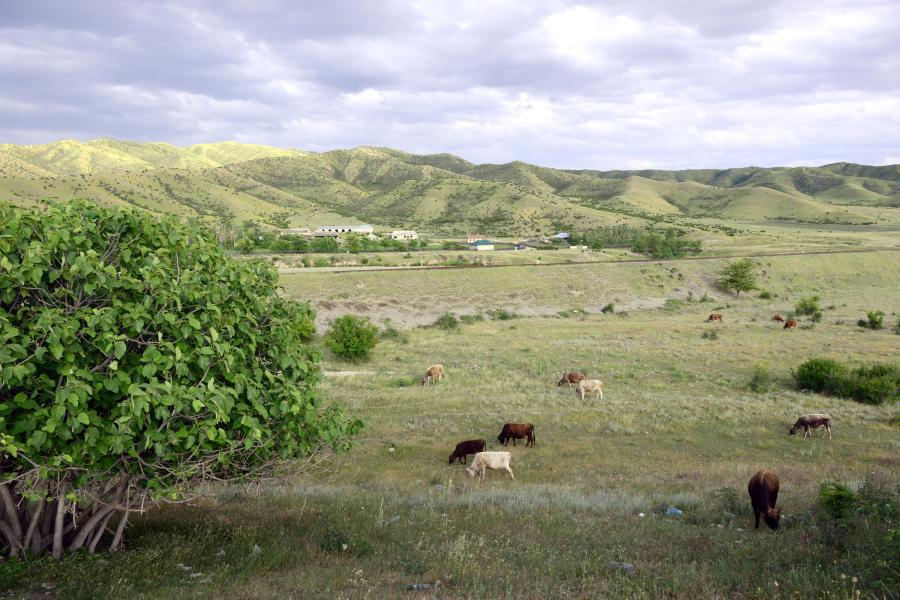GEF allotment helps Azerbaijan and Tajikistan protect natural resources and biodiversity
14 December 2020
- The Council of the Global Environment Facility, or GEF, agreed to support FAO projects in Azerbaijan and Tajikistan in worth of USD 12.5 million in total.

For the first, two new initiatives will reduce (and reverse) land degradation and conserve biodiversity of protected areas, while in the latter, sustainable water management will be supported with the neighbouring Afghanistan.
The projects will contribute to achieve the global Sustainable Development Goals (SDGs), specifically those on sustainable management of water (SDG 6) and life on land (SDG 15).
“FAO Azerbaijan, in close coordination with GEF, has been operating natural resources management projects since 2017, thus the approval of two additional proposals is a clear sign of the mutual trust among the three parties,” said Melek Cakmak, FAO Representative in Azerbaijan.
“In an upstream country like Tajikistan, the support of the Global Environment Facility to transboundary water management, combined with FAO expertise, will have a long-term positive impact on its development path of participating countries and other downstream countries of the region,” commented the FAO Representative to Tajikistan, Oleg Guchgeldiyev, on the approval of the project.
Restoring degraded land and biodiversity in Azerbaijan
Soils hold the largest terrestrial carbon pool and play a crucial role in the global carbon balance by regulating dynamic biochemical processes and the exchange of greenhouse gases with the atmosphere. Therefore, healthy soils and proper land use have beneficial effects on greenhouse gas emissions.
The project titled "Towards a land degradation-neutral Azerbaijan" aims to support national efforts to develop and implement national targets on land degradation neutrality, and pilots sustainable land management in Absheron Peninsula at the Caspian Sea, contributing to the rehabilitation of degraded lands and improved livelihood resilience.
It will take a phased approach, starting with a strengthened enabling environment for land degradation neutrality at phase 1, rehabilitating the saline and eroded land of the Absheron Peninsula – the most degraded area in the country at phase 2, and, finally, upscaling efforts, monitoring, and evaluation.
Another FAO initiative that received support from the Global Environmental Facility focuses on the conservation and sustainable use of biodiversity to improve governance and management of Azerbaijan’s protected areas. Additionally, it will contribute to more sustainable management of surrounding production areas by means of a holistic landscape approach.
A special attention will be given to women in achieving natural resource management, who will be supported to fully participate in training and biodiversity conservation planning, and to pursue alternative livelihoods reducing pressure on natural resources in the Hirkan and Shirvan National Parks, both key biodiversity areas in the Caucasus.





